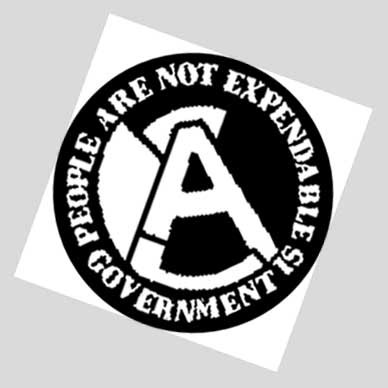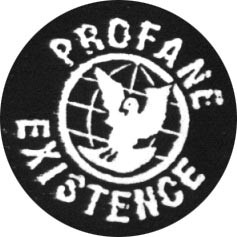382, No Border Zone
£0.45
No Border Zone
Out of stock
Description
The no border network is a tool for all groups and grass root organizations who work on the questions of migrants and asylum seekers in order to struggle alongside with them for freedom of movement, for the freedom for all to stay in the place which they have chosen, against repression and and the many controls which multiply the borders everywhere in all countries. This network is different from lobbying groups and NGOs because it is based on groups of grass root activists and intends to stay so.
The coordination between the groups is done through two meetings every year and a working list on e-mail.
The no border network is born of the convergence of campaigns in various European countries at the moment when undocumented foreigners had started to get self organized to get together and become visible to all (occupations, especially of churches, actions, demonstrations), to take their struggle in their own hands, in short to be autonomous. Freedom of movement, documents for all, abolish racist laws, no deportations were the main slogans of these sans-papiers.
The no border network was created in 1999. The European summit of Tampere in October 1999 was one more step toward the constitution of “corporation Europe” with its level of control adapted to the level of exploitation. Various European groups called for demonstrations against this summit, under the motto: “this actually means more controls, more arrests, more deportations”. Actions and demonstrations took place in eight countries.
The first no border meeting took place in Amsterdam in December 1999. It’s there that a mailing list was established. It enables many grass root groups, including out of Europe, to coordinate actions, to exchange information and to discuss about migrations and borders. Within the noborder network, we aim to work against all forms of exploitation and division, by working together to create new forms of collaboration and resistance. We aim to create a platform for exchange of information and experience among groups and individuals involved in different political struggles with an emancipatory anti-capitalist perspective. We also aim to work together with self organized groups of migrants. We aim to interconnect people working from different political practices and coming with different regional experiences.
1 the deportation alliance – It links the campaigns against airlines which take part in the deportation business: many successful actions were done against the main ones (Lufthansa, Air France, Swissair, Sabena, British Airways, Iberia …) In several countries actions took place at the airports to prevent deportations, especially by talking the passengers into imposing that the migrant be disembarked. Some airlines renounced, at least officially, to accept forced deportations on their flights.
www.deportation-alliance.com
2 the border camps – Many camps have been organized near the borders of European countries: Poland, Ukraine and Slovakia, Germany and Poland, Sicily, Spain, and also at the Mexico-US border. In 2001 more than 1000 people took part in a camp near the airport of Frankfurt. The aim of these camps is to act against the border regime which allows for the deportation and sending back of migrants; they are also an opportunity to create relations between vaious groups through debates and cultural and festive activities. In July 2002 a camp has been organized, where at least 2000 people gathered in Strasbourg, the city which houses the Schengen Information System (SIS), a data base for search and control, with tens of thousands of terminals all over Europe. It targets not only migrants, but every “suspected” individual. This camp was the scene of various demonstrations and actions and a platform of exchange between groups and individuals who struggle toward emancipation.
www.noborder.org/camps
3 the international action days around October 15th – They give rise to simultaneous actions in as many countries as possible on a common theme of the network (of course, there are also actions of the various groups on these themes at other moments). The first one has been at the time of the Tampere summit and was at the origin of the network.
4 The Campaign to combat global migration management- The presence of many countries of Eastern Europe in the network has made it possible to put on the agenda the problem of the IOM (International Office of Migrations) and beyond it the problem of the international management of migrations. The IOM presents itself as a manager of migrations: policy of internment and deportation of immigrants undesired for the governments, of recruitment and exploitation of the workers who are cansidered economically (and temporarily) “useful”. It reigns over the control of migrants in Ukraine and other East European countries and also has an activity in other countries in the world.
www.noborder.org/iom
5 The struggle against deportations and against detention centres and other forms of privation of freedom – prisons, closed centres, imposed residence placeé Various actions have been done in various countries in and out of Europe (demonstrations at airports and detention centres, evadings, destruction of centres, struggles against the construction of new centres).
Moreover, many initiatives and calls for actions in various countries circulate on the mailing list and we try to coordinate common activities. This particular approach to coordinate actions as an expression of a fundamental criticism of migratory policies is a major issue in the no border project. It implies a permanent work of networking and exchange of information, for or project is aimed at creating structures for a practical and effective resistance.
the noborder network, an attempt for practical resistance (2000)
the increasingly restrictive harmonisation of asylum and immigration policy in Europe, there have been several attempts in the last few years to improve the networking between anti-racist grassroots organisations.
Under the slogan “more control, more exclusion, more deportations”, different European groups appealed to demonstrate against the meeting of heads of EU governments in Tampere/Finland in October 1999, where the coming into force of the Amsterdam Treaty was discussed as another stepping stone towards Fortress Europe. In 8 different EU countries, demonstrations and direct actions were organised against the European project of deportation and exclusion. On the basis of this common practical experience and due to the increasing interest in cross border cooperation, the first noborder meeting was held in Amsterdam in December 1999. Activists from France, Italy, the UK, the Netherlands, Switzerland, Denmark, Belgium and Germany took part and groups from Poland, the Ukraine and Spain joined this attempt of grassroots networking at the second noborder meeting in Poznan/Poland in June 2000. A common [English speaking] mailing list has been set up in the beginning of this year and many grassroots groups, even from outside Europe, are actively using this networking project to exchange information and discuss migration and borders.
Two practical campaigns are central to these cross border activities:
Deportation-alliance [http://www.deportation-alliance.com]. This common web site connects campaigns against airlines that take part in the deportation business. During the past few years, there have been a plethora of successful actions against Martinair in the Netherlands, Air France, Swissair and against the Belgian airline Sabena. From these experiences, and from long-lasting aviation campaigns such as the Lufthansa and KLM campaigns, the resistance against deportations has gained a new impetus. At the moment, new initiatives are starting to target British Airways and Iberia in Spain. This exchange of experiences and the development of common bases for action have on the one hand proven to be an effective tool in disturbing the EU’s deportation machinery. On the other hand, this new “alliance” has served as a mutual encouragement at a time when prospects of resistance seemed bleak.
Border Camps . During the last three years, activists have created new forms of resistance against the brutal and often deadly border regime of Fortress Europe with different actions and border camps. This new approach has been taken up and developed further in the noborder network and this year (2000) has seen a chain of border camps. The first was held at the Polish border to the Ukraine and Slovakia, followed by camps in Germany [at its external border to Poland], Sicily [representing the “blue border” to Italy] and at the US- Mexican border. These border camps, which are characterised by diverse interventions and discussion groups, have been documented on the first European noborder web site [see above], and an expansion, to include groups from the UK and Spain, is being planned for the upcoming year.
Furthermore, many calls for actions in the individual countries circulate on the noborder mailing list and attempts are being made to coordinate common activities, particularly in resistance to official European summits. This practical approach, to coordinate actions as an expression of a fundamental critique of EU migration politics, is central to the noborder project. This involves continuous networking and information exchange. Because our aim always remains not only to criticise, but to create European-wide structures for practical and effective resistance.





